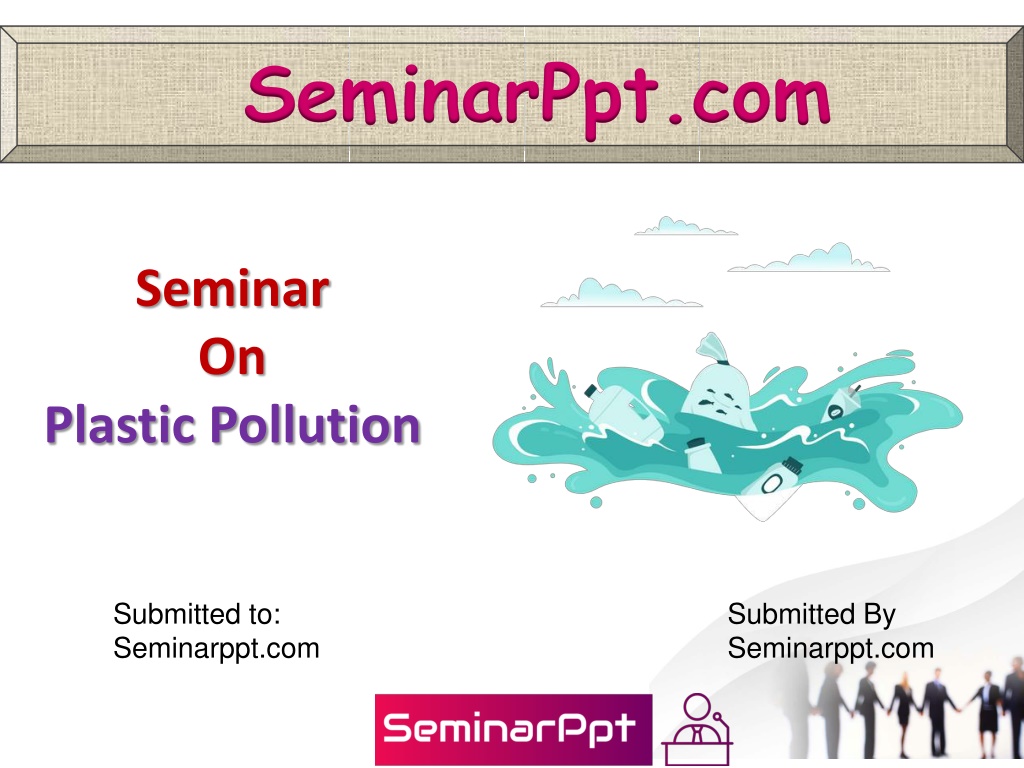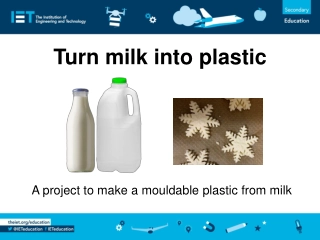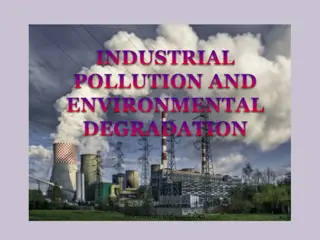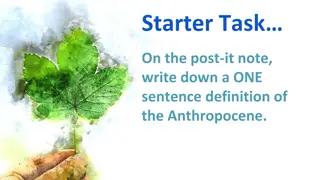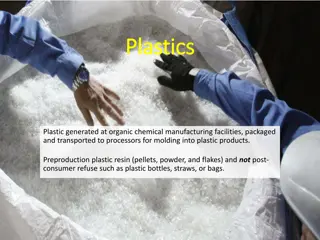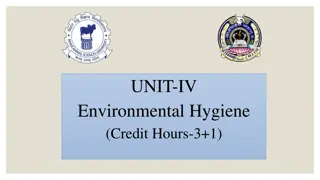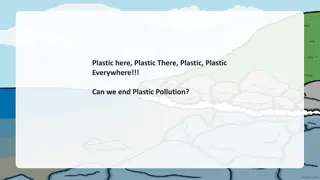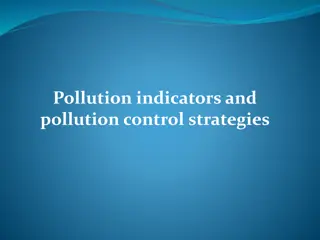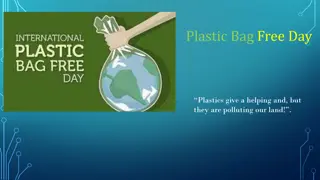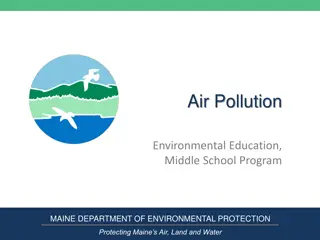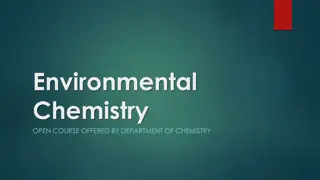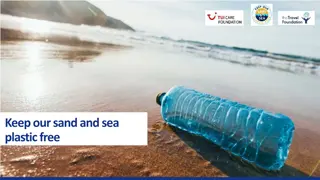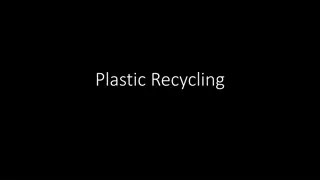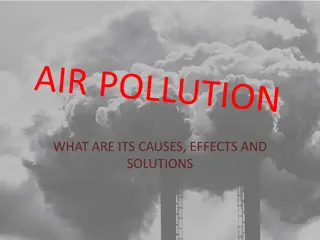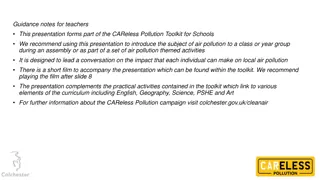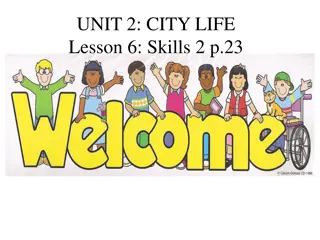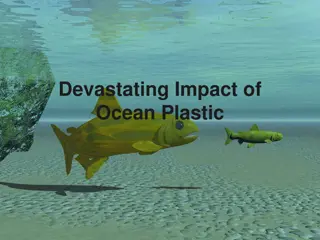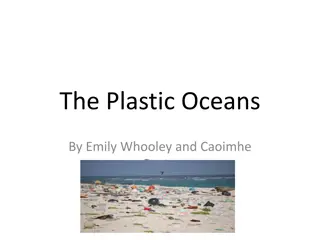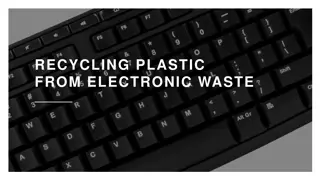Understanding Plastic Pollution and Its Impact on the Environment
Plastic pollution is a significant environmental issue caused by the accumulation of plastic objects and particles. This presentation explores the definition, introduction, effects, causes, types, and impact of plastic pollution on human health. It delves into the consequences of plastic waste on wildlife, habitats, and the global population due to the long-lasting nature of plastics and the challenges in their disposal and recycling.
Uploaded on Oct 05, 2024 | 0 Views
Download Presentation

Please find below an Image/Link to download the presentation.
The content on the website is provided AS IS for your information and personal use only. It may not be sold, licensed, or shared on other websites without obtaining consent from the author. Download presentation by click this link. If you encounter any issues during the download, it is possible that the publisher has removed the file from their server.
E N D
Presentation Transcript
SeminarPpt.com Seminar On Plastic Pollution Submitted to: Seminarppt.com Submitted By Seminarppt.com
Table of Content Definition Introduction Effects of Plastic Pollution Causes Types Plastic Impact on Human Health Conclusion 2
Definition Plastic pollution is the buildup of plastic objects and particles in the environment ( for example, bags, plastic containers, and microbeads) that harms wildlife, natural and wildlife habitats, and mankind. 3
Introduction Because plastics are cheap and long-lasting, humans produce a large amount of it. Most metals, on the other hand, have a chemical structure that makes them resistant to several natural degradation processes, making them hard and slow to degrade. These two components have combined to make plastic pollution a major issue in the environment. 4
Causes of Plastic Pollution The plastic waste trade was described as "a major contributor" to marine litter. Importing countries also lack the ability to process most of the plastics waste. As a result, the UN has placed a penalty upon this trade of waste plastic until it meets the requirements. 6
Causes of Plastic Pollution The world's population is growing, and people are becoming increasingly reliant on plastic. The grocery industry, which uses plastic to package anything. Bottles, straws, stirrers, straws and container caps made of plastic. 7
Types of Plastic Debris Microplastics, and mega- and macro- plastics, are the three main types of plastic that lead to plastic pollution. The Northern Hemisphere has the highest concentrations of mega- and microplastics, which are concentrated across urban centres and waterfronts. 8
Types of Plastic Debris Micro Debris Plastic fragments ranging in size from 2 to 5 mm are known as micro debris. Plastic debris that begins as meso- or macro debris can degrade and collide, breaking its food into smaller parts, resulting in micro debris. 9
Types of Plastic Debris Macro Debris When plastic debris is greater than 20 mm, it is classified as macro debris. Plastic grocery bags are an example of this. Macro Debris is commonly found in ocean waters and has the potential to harm native species. Fishing nets seem to be a major source of pollution. 10
Plastic Production Decomposition of Plastics: Plastics account for about ten percent of all discarded waste. Plastics come in a variety of shapes and sizes, based on the precursors used and the polymerization method used. 12
Plastic Production Persistent Organic Pollutants: The global production of plastics is predicted to be around 250 mt/yr. Their abundance has been discovered to transfer POPs, or persistent organic pollutants. The expanded spread of algae related with red tides has been linked to such pollutants. 13
Plastic Production Commercial Pollutants: Break Free From Plastic, a non-profit organisation, mobilised over 70,000 volunteers in 51 countries to acquire and recognize plastic waste in 2019. According to The Guardian, such volunteers gathered over "59,000 plastic bags, 53,000 sachets, and 29,000 plastic bottles." 14
Conclusion Plastic pollution can alter habitats and natural processes, reducing ecosystems' ability to adapt to climate change, directly affecting millions of people's livelihoods, food production capabilities and social well-being. UNEP's body of work demonstrates that the problem of plastic pollution doesn't exist in a vacuum. 16
References Wikipedia.org Google.com Seminarppt.com Studymafia.org
